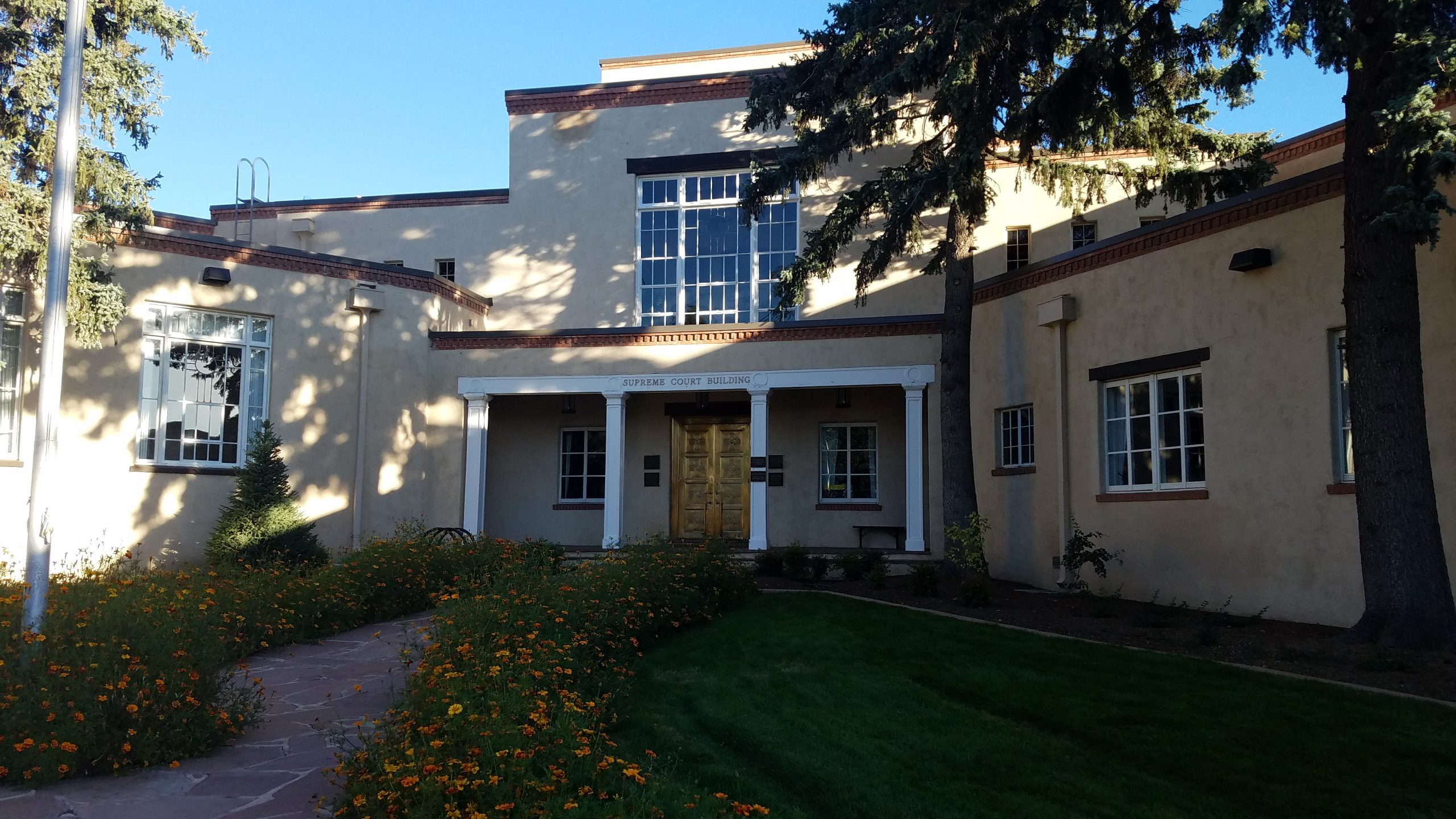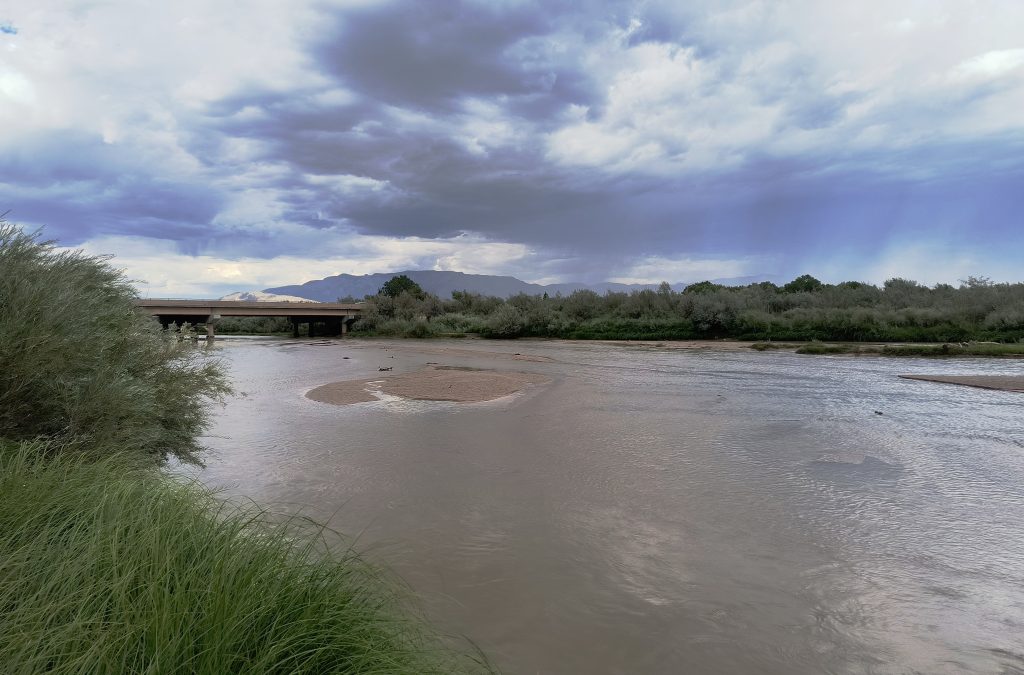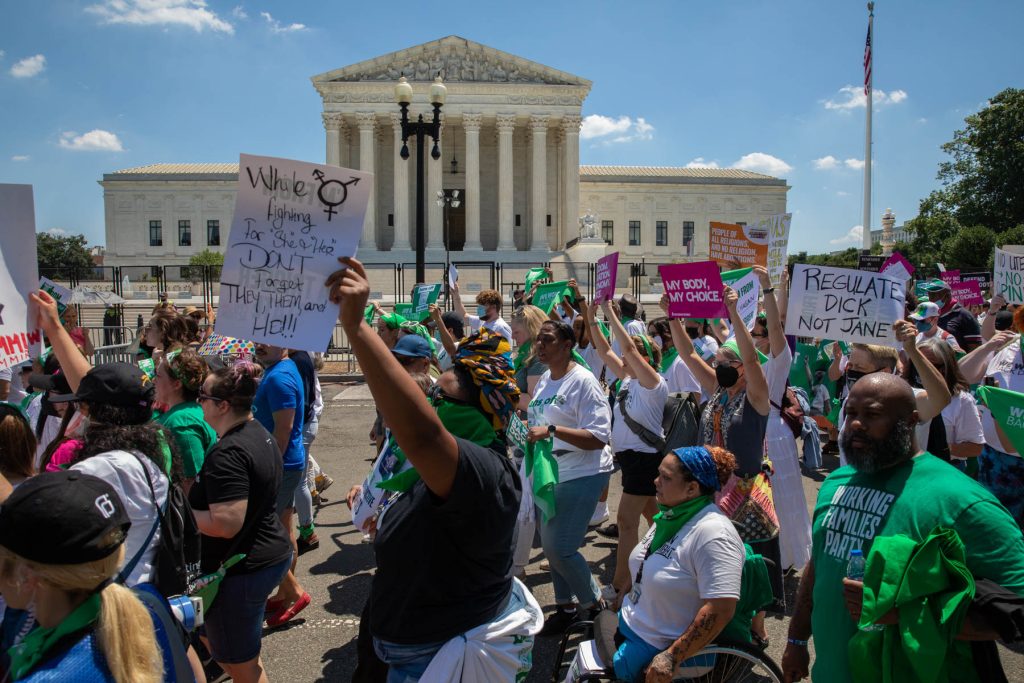The New Mexico Supreme Court ruled Tuesday in a 3-2 decision that the state Legislature can hold a special session without allowing in-person attendance from the public.
The decision was a result of a petition filed on behalf of a long list of state lawmakers by Albuquerque-based attorney Blair Dunn. The petitioners argued that this week’s special legislative session should be physically open to the public, not just online. With the backdrop of the current COVID-19 pandemic, legislative leadership announced earlier this month that the state capitol building would be closed to the public, with some exceptions for members of the press.
The high court issued a written order, but no written opinion. Chief Justice Judith Nakamura, the only Republican on the court sided with Justices Barbara Vigil and Michael Vigil. Justices Shannon Bacon and David Thomson dissented.
“I’m really disappointed that the courts didn’t take this matter and the lack of access by New Mexico citizens more seriously,” Dunn told NM Political Report just after the hearing.
Dunn filed a petition with the high court last week, asking justices to order the Legislature to allow members of the public access to the state capitol beyond video streaming. In a written response to Dunn’s petition, Thomas Hnasko, a lawyer for the Legislative Council, argued that the public can still participate in democracy remotely.
In his opening statement, Dunn argued that not physically allowing the public into the capitol building goes against open government.
“Our democracy and the transparency of our democracy, and the critical nature of our democracy really is a nonpartisan, not even just bipartisan issue, but a nonpartisan issue that requires all of us to participate in preserving the union by dealing with things in an open and transparent fashion,” Dunn said.
In answering the justices, Dunn also said he did not think his clients would object to certain limitations that stem from public health orders like keeping a safe distance from others and wearing masks. He praised the state’s Department of Health for implementing guidelines that have allowed businesses to reopen.
“Those guidelines are there and could be adopted by, or instance, the Legislative Council,” Dunn said. “And if there is a capacity limitation similar to, for instance, going to a church and we’re only going to allow 50 percent of the capacity at a time into the Roundhouse, I think that’s a fair limitation. I don’t think that any of my petitioners would quibble with that.”
Nakamura questioned Dunn on what public means in modern standards compared to the beginning of the 20th century
“When this provision was adopted in 1911, we know New Mexicans didn’t have internet service,” Nakamura said. “Few likely had telephones, and probably back then horses and one’s own two feet were the primary forms of transportation, so it was tough to even get to where the legislature was meeting.”
In addressing Nakamura’s question, Dunn argued that participating in the state Legislature includes being able to get face-time with lawmakers.
Hnasko argued that the Legislature would ensure that the public is able to adequately participate through the internet, although an internet outage in the court’s chambers seemed to highlight technology problems with remote participation.
Hnasko also argued that even without a pandemic, some members are still limited in their travel and rely on remote viewing. Even the state supreme court, Hnasko argued, has limitations on in-person viewing.
But Thomson said that’s different than outright barring people from entering a public building.
“My concern is here, it’s just an absolute prohibition,” Thomson said.
Hnasko said online viewing does not limit the public’s ability to participate.
“Justice Thomson, I would respectfully disagree that it’s an absolute prohibition, the only thing that is prohibited is physical presence,” Hnasko said. “Functionally, that citizen has the right to participate in the legislative process, just as he or she would, and perhaps even better.”
About 15 minutes later, as Hnasko was wrapping up his argument, the internet at the supreme court building went out. Several minutes later, the connection was restored, but the irony was not lost.
After the hearing resumed, Shannon Bacon asked Hnasko what the Legislature would do if a similar situation happened during the special session.
“Your Honor,” Hnasko said. “The legislature is gonna work very hard to make sure, a) that it doesn’t go down and b)…”
“You don’t have that kind of control,” Bacon interjected.
She went on to suggest that the Legislature should pause any time the live stream is interrupted.
“If best efforts were to carry the day, or ‘it’s never going to happen’ were to carry the day, we wouldn’t have lost our connection with you during this argument,” Bacon said. “So shouldn’t their work stop just the way our work stopped?”
Hnasko said he had the “utmost faith” that the Legislature would stop proceedings if the public could no longer watch them.
The special session starts Thursday and could last throughout the weekend, though some committee hearings will take place on Wednesday.


















